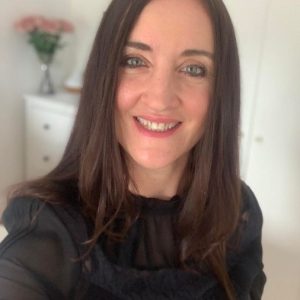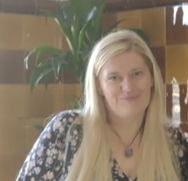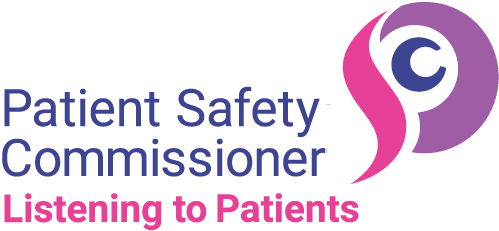Introduction
Welcome to the Patient Experience section of the PSC website which features patients’ experiences of healthcare. Some of these experiences have led to changes in the way in which the healthcare system operates, others are still campaigning for change. If you have an experience you would like to share, please contact us at pscenquiries@patientsafetycommissioner.org.uk
Merope Mills outlines her daughter Martha’s tragic death

Martha Mills died aged 13 from sepsis in King’s College Hospital in London. Her mother Merope recounts the lead up to her daughter’s death and why she initiated the campaign to see Martha’s Rule, whereby patients can obtain an immediate second opinion in hospital.
Nadine Montgomery tells of her battle to improve consent
Nadine Montgomery tells her account of the birth of her son Sam and the subsequent landmark rule Montgomery v Lanarkshire Health Board (2015) that a person of sound mind is entitled to decide which, if any, of the available forms of treatment to undergo, and their consent must be obtained before treatment interfering with her bodily integrity is undertaken.
Kath Sansom explains how her experience of pelvic mesh led to a new campaign group

‘Mesh made me stand up and fight for others.’ Kath Sansom had a pelvic mesh inserted in 2015 after developing stress urinary incontinence following childbirth. Immediately she began to feel extreme pain: ‘It was dreadful, like someone had taken a baseball bat to my legs and hips, with an awful burning inside.’ She had the mesh removed seven months later but has been left with autoimmune diseases and allergies.
‘I regret that I let it happen,’ she says. ‘I felt stupid and embarrassed that, like all of us, I did not research it before I went in – I trusted my doctor and wasn’t warned of the risks.’
In June 2015 Kath founded Sling the Mesh, the patient campaign group, which now has over 10k members. ‘Mesh has taken away the quality of life from thousands of people globally. People have lost jobs, marriages, their health. Nobody took the mesh-injured seriously until I kept pushing out the message in press releases, stories, blogs, social media.’ Kath’s campaign led to a plethora of media coverage and support from politicians, then the First Do No Harm report from Baroness Cumberlege, followed by the establishment of the Patient Safety Commissioner role.
‘For me, the aim is to make sure it doesn’t happen again,’ says Kath. She wants to see a Sunshine Act implemented to reveal payments made by manufacturers to doctors that can lead to biased healthcare evidence. She also wants to see mandatory reporting by doctors of any complications through the Yellow Card scheme, pointing out that two thirds of mesh complications ware not being logged. Robust medical device approval, fully informed consent, and non-invasive preventative measures, such as physiotherapy, are also key.
Emma Murphy details the impact of sodium valproate

For Emma Murphy, who founded In-FACT (the Independent Fetal Anti-Convulsant Trust), valproate is a scandal. ‘There’s too many affected children and adults who were told they were bored housewives.’
Emma has six children, five of whom have disabilities, including autism and developmental delay, because of taking an epilepsy drug she took while pregnant. When diagnosed with epilepsy at the age of 12, Emma was prescribed valproate, regarded as the best drug, to manage her seizures. When pregnant with her first child, she asked her GP and her neurologist whether it was safe to continue using valproate and was reassured that it was. Throughout her following five pregnancies at every hospital appointment, she continued to ask about the safety of the medication during pregnancy. ‘When I raised worries, I got fobbed off: I was told I was depressed; I was told I was reading into things.’ When she conceived her sixth child, she was prescribed another anti-convulsant drug, Keppra, and her seizures became more frequent but milder. He was born without FVS but has kidney issues.
In 2012 she joined forces with Janet Williams, who had already been campaigning on behalf of those with Fetal Valproate Syndrome (FVS) and formed IN-FACT (The Independent Foetal Anti-Convulsant Trust) to represent the estimated 20,000 people with FVS. An All-Party Parliamentary Group for valproate and other anti-epilepsy drugs was set up and in 2018 regulations were strengthened so that valproate medicines cannot be used in women of childbearing potential unless a Pregnancy Prevention Programme is in place. But more needs to be done. ‘It’s truly scandalous – women are not told about the risks. We still see valproate dispensed in white boxes without warnings. Women are not systematically signing forms stating they have received the information to make an informed choice.’
Emma wants to see redress and compensation for the thousands of people that have been affected. ‘There needs to be an apology on behalf of the government – not just the NHS – because regulators and the government knew about the risks.’
Find out about the Patient Safety Partners Network
The Patient Safety Partners Network is open to all Patient Safety Partners (PSPs) working with NHS organisations in England. The network meets online once a month to share ideas. It provides a unique opportunity to meet other PSPs and talk about how different partners are seeing their role develop to have an impact on patient safety. The network is hosted on the Patient Safety Learning hub. Email info@pslhub.org to apply to join the PSPN.
NHS England seeks new PSPs
NHS England is looking for additional patient safety partners to join its national patient safety team and NHS England’s regional teams.
Patient safety partners are an important voice for patients and communities and ensure that the patient, service user, carer, or family member perspective is at the forefront of all that we do to improve patient safety. Please let the organisation know if you’re interested in the role, and have the skills and lived experience to improve patient safety across the NHS in England at national or regional levels.
The application pack is available here: NHS England » Current opportunities to get involved.


